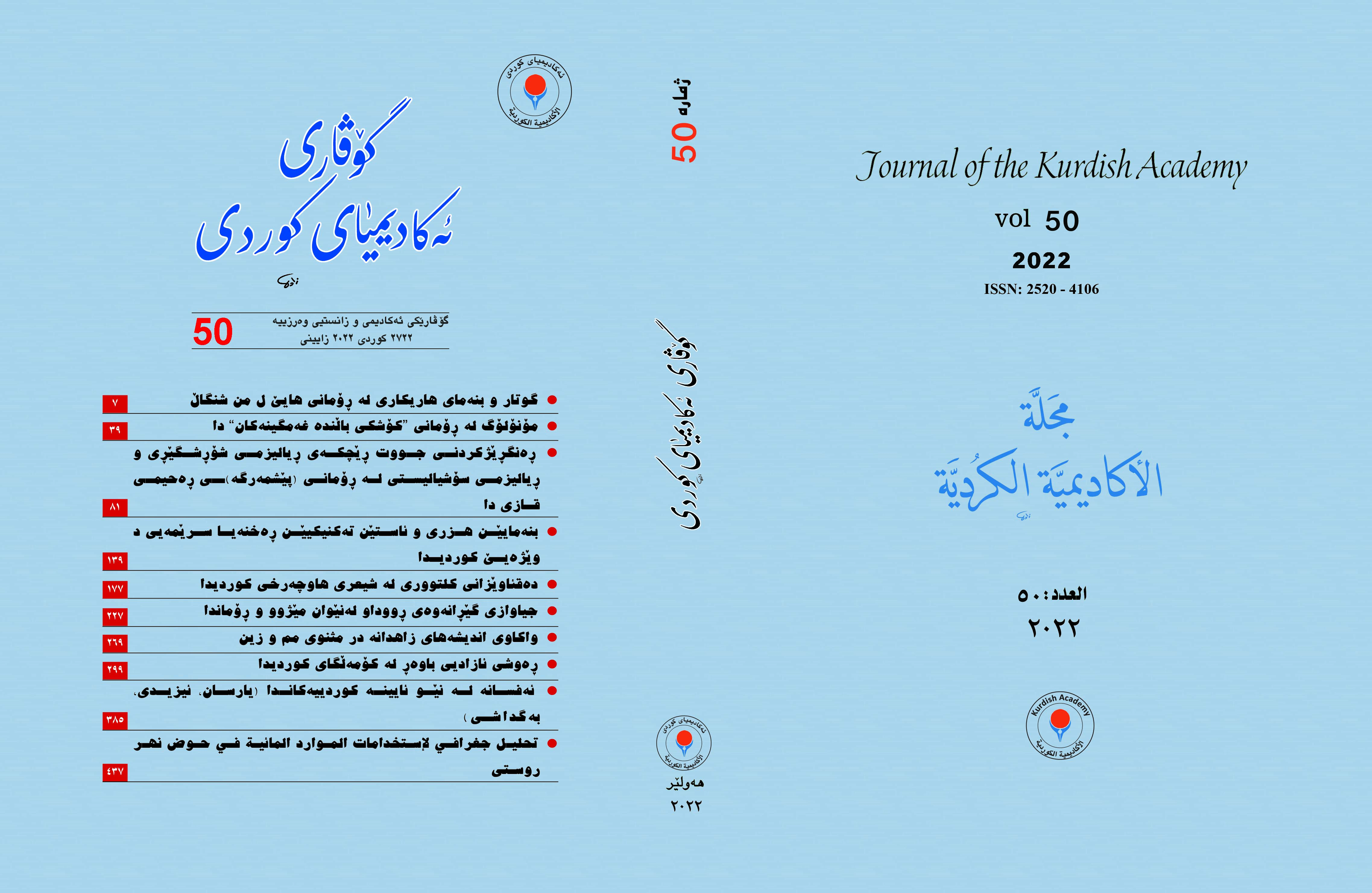Technical foundations and cognitive levels of impressionistic criticism in Kurdish literature
DOI:
https://doi.org/10.56422/ka..50.40Keywords:
Impressionistic Criticism, Affection, Affective, Tasting, Peak experienceAbstract
The research deals with the effect of artistic taste for literary works and the resulting critical observations of the reader. And what is based on that taste of fleeting impressions and conclusions from the sustainable accumulation of knowledge of the critic what he explores artistically in the expressions of that structure of meanings that it is difficult for the amateur reader to comprehend adequately without relying on what is presented to him in his deconstruction of the text and analysis of its components linguistically then structuring his critical subject that serves as a guide to the poet and the deducting assistant to the recipient at the same time.
The research consists of two parts: the first section is concerned with the theoretical side of the subject, and provides a full definition of the term impressionistic criticism, its concept components, its position in the critical discourse, its features at the levels of the readable text, its linguistic and artistic meanings, and then its direct relationship with the recipient.
In the second section, the researcher tried to apply what was concluded in the first section to one of the critical texts published within the contents of the book (Voices and Stumblings - Critical Readings) as a model for impressionistic criticism in Kurdish literature with a detailed explanation of its three levels in terms of dealing with the poetic text and dissecting the implications of its expressions in its deviation and syntax. Syntax, as well as methods of addressing conceptual communication between the poet as the creator of the text and the recipient as its reader.





